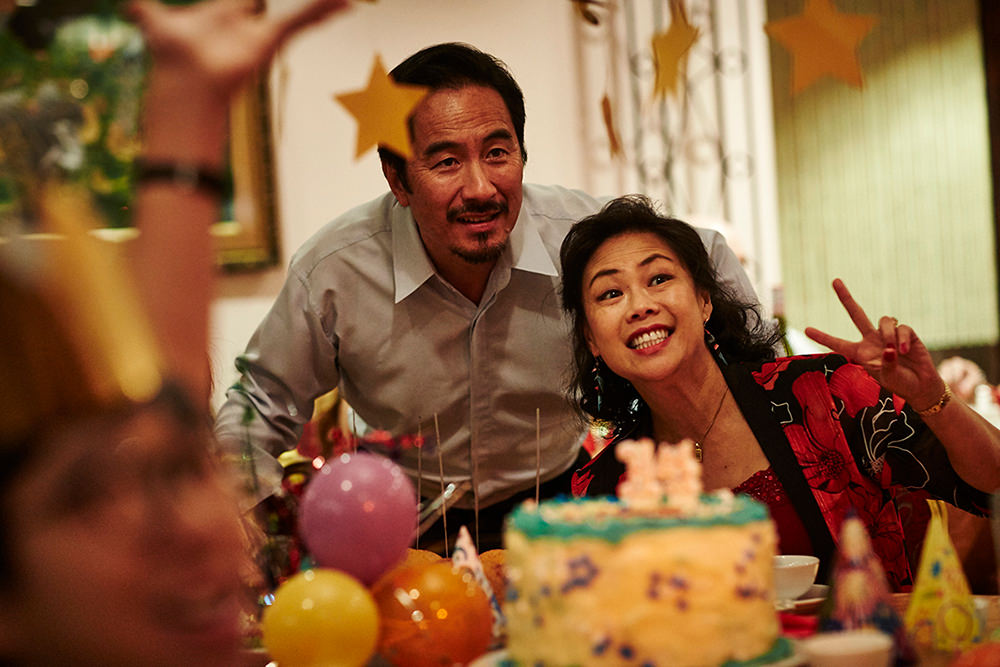Multiculturalism on TV
Diversity shouldn’t be the central focus of a series, but simply exist within a moving, engaging and universal story, says Tony Ayres, producer of SBS series, The Family Law.
 The Family Law
The Family Law
When the book The Family Law first came out in 2010, Benjamin Law thought the publishers and he had made a terrible mistake.
“Who’s going to read about a kid growing up gay and Asian in 1990s coastal Queensland as their parents’ marriage falls apart around them? It’s not exactly the classic Australian story,” Law says.
But not only did it collect a big readership because of those things, it caught the attention of producer/director Tony Ayres of Matchbox Pictures.
“By the third paragraph I was completely sold,” says Ayres, who is himself Chinese-Australian, calling The Family Law “a dream project”.
“It was about being Chinese but it was also just being human. These were great characters who I hadn’t seen on our screens before and were engaging and flawed and funny.”
Ayers is proud they’re breaking new ground with the comedy, which premiered on Facebook and is screening on SBS.
“We have never had an all Chinese Australian sitcom before,” Ayres says.
In fact, when Benjamin Law was young seeing a Chinese-Australian character in a secondary role, let alone a starring role, was rare.
“I remember growing up we probably did what a lot of non-white Australian families did, playing the game of ‘Spot The…’ and in our case it was Spot the Asian,” he says.
“Whenever there was an Asian person on TV outside the realm of SBS, we’d point to it and it was like, ‘omg there’s an Asian on television, and it’s so exciting’.”
The problem that this creates, Ayres says, is that people who aren’t Caucasian grow up believing their lives would be better if they were a white person.
“Television is all about what you aspire to, and non-Anglo people are used to seeing white people on TV. So what happens then is you aspire toward whiteness,” Ayres says.
“It does affect your sense of self because the only person that looks like you is a secondary character… I know growing up I always thought consciously and unconsciously being white was better. Life would have been easier if I was Anglo and all those things. Sometimes you articulate it, sometimes you don’t, but I think that’s the dynamic that gets set up when you don’t see yourself onscreen.”
Ayres believes that by having more non-Anglo characters starring on screens, people will begin to get used to aspiring toward something different.
“What you could argue is our racial tolerance comes from being able to see the point of view of many other races,” he says.
With television this year set to screen Channel Nine’s Here Come the Habibs, ABC’s Cleverman and Channel Seven’s The Secret Daughter, amongst others, 2016 is shaping up to be a year where Australia really embraces its diversity.
“Australia is getting to a point where we’re belatedly embracing our multiculturalism,” Law says.
“We do want to see the world as we know it. This isn’t just about The Family Law either. I want to see that multicultural mix of Asian Australian, or Arab Australian, Indigenous Australian in the mix of our TV shows.
“I don’t think there’s any excuse for having an Australian TV show or film set in contemporary Australia especially in the cities and it not including non-white faces, because that’s my friendship group, those are our workplaces and those are our families as well.”
But as Ayres is quick to point out, diversity shouldn’t be the central focus of a series. To be reflective of Australia, it should just exist within that world, as part of the complete picture, not what the crux of the story hangs on.
“(Ultimately) when you’re looking for stories, no matter what the background culture is, you’re looking for things that engage you and move you, and stories that feel both original but also have an universality,” he says.
“The Family Law, for example, has both those things.”
Because at its heart, a series like The Family Law might follow a Chinese-Australian’s story, but it’s really about family and growing up.
“It has a certain kind of Wonder Years quality, and a certain kind of Freaks and Geeks quality to it, because it’s about outsiders,” Ayres says.
Unlike the book, which houses a collection of stories from the 1970s through to the 00s, the six-part TV series The Family Law, focuses on one hot Queensland summer.
“For us it was very much about the story of a marriage falling apart,” Law says, “especially a marriage that had a lot of children in the mix, because the stakes were really, really high. That was certainly the case for my mum when she split up with my dad, asking herself the question of ‘what will my life look like as the single mother of five?’.”
Despite it being laugh-out-loud funny, Ayres also found it realistic.
“It’s grounded in truth and I think that that’s what gives it that ability to connect,” he says.
“It’s also a real crowd-pleaser. It’s a warm show and it goes to dark moments, but never ends in dark places.”
Catch The Family Law on SBS Thursdays at 8.30pm and SBS On Demand.

What to read next
Screen Australia launches a comprehensive report into diversity on Australian screens to inform the conversation and calls for real, long-lasting change.
24 Aug 2016
Caris Bizzaca